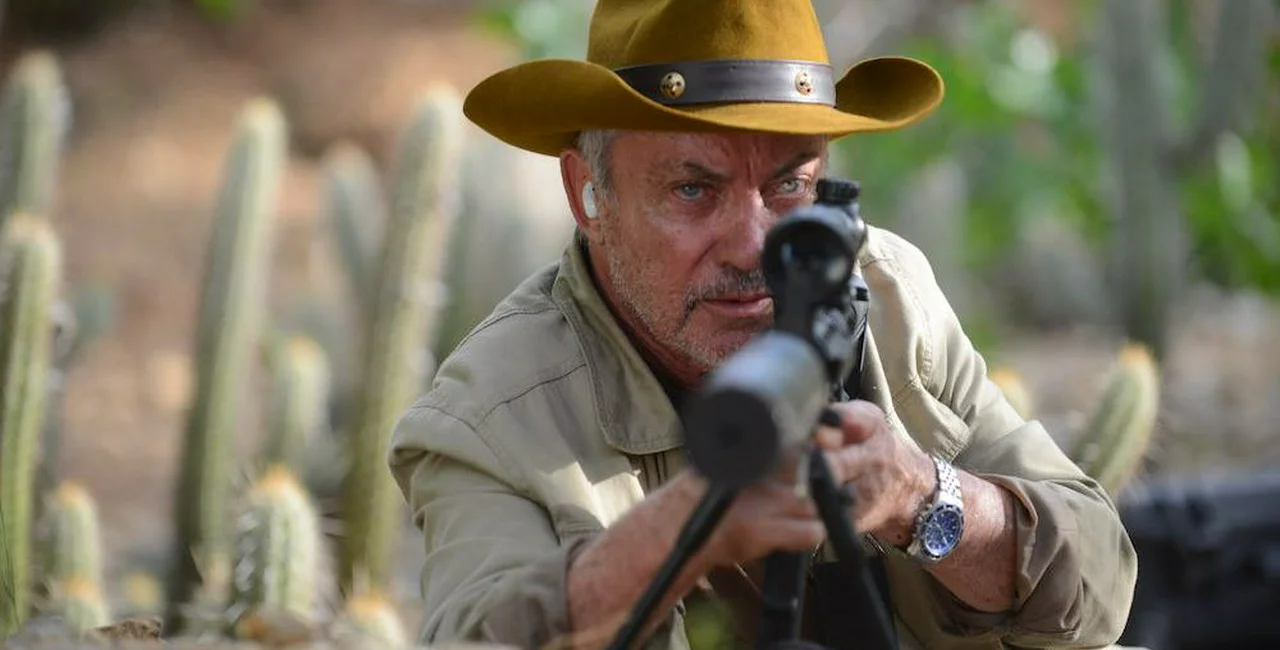Two separate but back-to-back film festivals will present Latin American cinema. Cine Argentino takes place October 24–30 at Lucerna, and Kino Brasil runs October 31–November 3 at Bio Oko. Both will present films with English and Czech subtitles.
Cine Argentino is in its eighth year and will show nine films. The opening will be the crime drama Angel (El Angel / Andílek), based on a true story of a serial killer’s 1971 crime spree. The film debuted at the Un Certain Regard section at the 2018 Cannes Film Festival.
At the opening
ceremony October 24 opening, viewers can also look forward to a
demonstration of Argentine tango in the arcade of Lucerna Palace.
After the film, a concert of Argentine music will be held in
Lucerna’s Marble Hall.
“As in previous years, the festival features a wide range of film genres, including the comedy My Masterpiece (Mi obra maestra / Mé mistrovské dílo) about a gallerist and painter who devise a crazy plan to get rich in the art market,” festival founder and dramaturg Jan Rybář, said.
“Audiences can look forward to The Lost Brother (El otro hermano / Druhý komplic) a scary thriller from the small town of Chaco, or a sensitive and realistic view of the young girl in Invisible (Neviditelná). The dramatic film Red (Rojo / Ruda), a critically acclaimed enigmatic story in which a number of film genres can be identified, is set in the period just before the advent of Argentine dictatorship,” he added.
The film Zama (Zama), set in the colonial era, was the winner of the Condor de Plata 2018. Popular Argentine actor Ricardo Darín stars in the marital drama An Unexpected Love (El amor menos pensado / Nečekaná láska). The documentary Solo (Sólo) shows pianist and composer Martin Perín’s struggle with mental illness. The 2014 film Wild Tales (Relatos Salvajes / Divoké historky) presents six short films about vengeance.
Kino Brasil is in its sixth edition and presents six critically acclaimed films. The theme this year is Welcome to the Wilderness.
“We chose the central theme for this year’s Kino Brasil long before the media brought unfortunate news from the Amazon. As in the films we bring, the critical view is only in the light of current events. Under the term wilderness in a Brazilian context, we don’t see only the forest, ecological challenge and the situation of indigenous people. We can also think of the urban jungle of ever-expanding metropolises, or the wild twists of recent years in a social, human rights and political context where rules are set aside,” Kino Brasil dramaturg Gabriela Šmaiclová said.
“Nor can we avoid
the ferocity between people and within man in general. I think we
managed to capture all this with the selected films. And they are all
great and award-winning films,” she added.
The opening film is Bacurau (Bacurau), which won the Jury Prize at the 2019 Cannes Film Festival. The modern-day psychedelic western stars Sônia Braga and Udo Kier. A small town in the outback of Brazil finds itself mysteriously removed from maps and cut off from outside communication. Villagers realize something is very wrong. Directors Kleber Mendonça Filho and Juliano Dornelles will introduce the first screening.
Long Way Home (Temporada / Domů) sees a woman trying to overcome her past after she moves to a big city for a new job helping to fight mosquito-borne illness. It is the second film from director André Novais Oliveira.
Traditional Afro-Brazilian religious practices come into conflict with modern ones in Azougue Nazareth (Azougue Nazaré). Local people have samba competitions, as they prepare for Carneval. But strange things begin to happen in the sugar fields. The film won the Bright Future Award at the International Film Festival Rotterdam (IFFR).
Religion is also the focus of the futuristic sociopolitical film Divine Love (Divino Amor / Boží láska), where an office clerk tries to convince a couple to stay together, then the clerk has to face here own crisis. It screened at the 2019 Sundance and Berlin film festivals.
The 2016 documentary Martyrium (Martírio) looks at violence and struggles among a large indigenous population.
Wim Wenders and Juliano Ribeiro Salgado co-directed the documentary The Salt of the Earth (O sal da Terra / Sůl země), examining the works of Salgado’s father, the Brazilian photographer Sebastião Salgado. It won the Special Prize at the 2014 Cannes Film Festival.
There is also a side
program presenting Brazilian culture and food.
More about Cine Argentino can be seen here, and about Kino Brasil here.












 Reading time: 3 minutes
Reading time: 3 minutes 




























